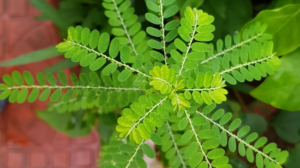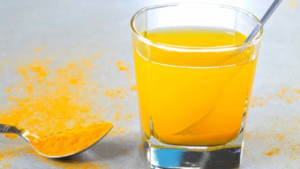Tawa-tawa is usually a sought-after herb when someone has dengue, but some say it’s also good for asthma. Most recently, it is being tested as an adjunctive treatment for mild to moderate cases of COVID-19. What’s the truth behind it? Can tawa-tawa really help with asthma and other respiratory diseases?

Uses
Tawa-tawa is an herb that grows in open grasslands, roadsides, and pathways throughout the Philippines. It is sometimes locally called “gatas-gatas,” because of its milky juice.
The plant is hairy in nature and is typically found in tropical areas. It is well-known for its medicinal benefits and is also popularly known as the “asthma plant.”
But can tawa-tawa cure asthma? Is it effective for treating dengue? Here are the medical benefits of tawa-tawa.
What are the uses of tawa-tawa?
- Traditional medicine practitioners often use tawa-tawa as a treatment for respiratory illnesses. Traditional medicine in the Philippines uses tawa-tawa to cure asthma, cough, and bronchitis. This is due to the anti-inflammatory properties of the plant, which is ideal for soothing irritation in the respiratory passages.
- This medicinal plant’s leaves can also be used to reduce anxiety and stress levels.
- Tawa-tawa for treating the symptoms of dengue. Many people wonder how to use tawa tawa for dengue. What experts know so far is that it can not actually cure dengue, tawa-tawa helps increase platelet count.
- When used in tea, it can help ease hypertension by lowering blood pressure.
- Tawa-tawa for diarrhea. The herb exhibits antidiarrheal activity and some use it as an alternative for treating diarrhea. It is also used for treating dysentery and enteritis.
- Tawa-tawa as medication for skin ailments. In some cases, tawa-tawa leaves are effective in the treatment of skin ailments such as boils, sores, and wounds. It is also useful as a treatment for athlete’s foot.
- The herb is also popular for soothing eye infections and reducing signs of pink eye or conjunctivitis.
- Tawa-tawa can be used to eliminate intestinal worms.
- Tawa-tawa is a known natural diuretic. Diuretics inhibit urination, which helps eliminate toxins in the body and improve flow in the bladder.
- The roots of the tawa-tawa are also a breast-milk stimulant. The roots are useful for nursing mothers who are experiencing difficulty producing their own milk.
- Tawa-tawa leaves also help alleviate the symptoms of syphilis.
How does it work?
The extract of the tawa-tawa plant has anti-asthmatic properties. It causes the bronchial tubes to relax and has a depressant effect on respiration.
This is why tawa-tawa tea is an herbal remedy for the treatment of asthma and other respiratory diseases.
Ethanol is also present in the extract of tawa-tawa, which contains anti-bacterial and anti-fungal properties.
In addition, the polyphenol extract of the plant is anti-amoebic. Tawa-tawa leaves have many uses for the treatment of wounds, boils, and athlete’s foot.
The diuretic effect of tawa-tawa helps cleanse the body from toxins, since it induces the production of more urine. Tawa-tawa also has antioxidant activity, which helps protect our cells from damage.
Tawa-tawa extracts have also shown improved galactogenic activity in guinea pigs, increasing the development of mammary glands and induced secretion. This make tawa-tawa an effective breast milk stimulant for breastfeeding mothers.
Other properties of tawa-tawa is that it is antimalarial, antidiarrheal, and anticancer.
Precautions & Warnings
What should I know before using tawa-tawa?
Make sure to talk to your doctor or a healthcare professional before taking tawa-tawa to help cure asthma or other diseases. It can have side effects or interactions with your medications or health condition.
How safe is it?
More studies on the tawa-tawa plant have yet to be made, and although it is often utilized for its medical properties, it still contains toxic chemicals that may be harmful when consumed.
It can induce vomiting, so large doses of tawa-tawa are not advisable. Make sure to consult your doctor before taking tawa-tawa, especially if you are on medication or have a pre-existing medical condition.
Special precautions and warnings
The sap of the tawa-tawa plant contains latex, which is toxic when ingested and can cause external irritation. This can cause sensitive skin reactions and severe inflammations, especially when contact has been made with the eyes or with open wounds. Even when dried, the plant can remain toxic. It is also carcinogenic in nature, so experts advise against prolonged and regular contact with the sap.
Tawa-tawa can also affect sperm motility in men.
Research has also not established that tawa-tawa is safe for pregnant women. So make sure to ask your doctor before adding tawa-tawa to your diet.
Consult your doctor for proper diagnosis and treatment before taking tawa-tawa as preventive or curative medicine. Make sure to wash the leaves properly before use.
Side Effects
What kind of side effects may I have from tawa-tawa?
Seek immediate care if you experience allergic reactions such as rashes, a swollen face, tongue, or throat, or difficulty breathing after consuming tawa-tawa.
Other side effects of tawa-tawa include nausea, vomiting, and gastrointestinal pain. It is also has a depressant effect on the heart when consumed excessively.
Tawa-tawa also decreases sperm motility in men.
Interactions
What interactions may I have with tawa-tawa?
Ask your doctor for advice and proper treatment before taking tawa-tawa as it can cause harmful reactions with your current medications or health condition.
Dosage
The information provided is not a substitute for medical advice. ALWAYS consult your herbalist or doctor before using this medication.
What is the usual dose?
Consult a doctor for proper diagnosis and treatment of your ailments, before taking tawa-tawa. They will also be able to prescribe the appropriate dosage. Depending on condition, dose may vary from one patient to another.
What form does tawa-tawa come in?
Tawa-tawa is often available in the form of tea – either candied or capsuled – for easy brewing. However, if you find tawa-tawa in nature, you may get the plant, take off the roots, clean it, and let it boil for tawa-tawa tea. But please consult a doctor before ingesting it, as well as any herbal medicinal plant.
If for external use such as for wounds and sores, the plant can be crushed until a watery liquid is extracted. You may apply this extract onto the affected area using a cotton pad.
Learn more about Herbals and Alternatives here.
Source link Here


